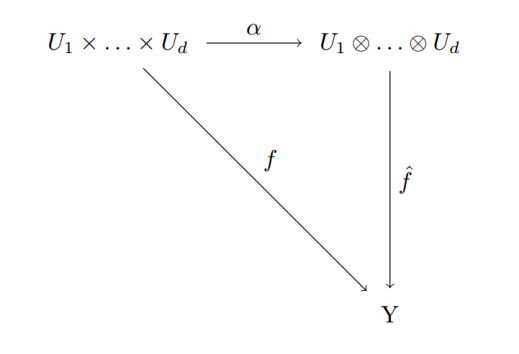[Two-out-of-three property] Let f: A→B and g: B→ C be two morphisms. If $$g$$ and $$gf$$ are isomorphisms, then so is f$$.
Solution:
There exists h: C→A such that $$(gf)\circ h = I_{C}$$. By hypothesis, $$g$$ is an isomorphism, so
\[(gf)\circ h = I_{C}\Longrightarrow\]
\[g^{-1}(gf)\circ h = g^{-1}I_{C}=g^{-1} \Longrightarrow\]
\[f\circ h \circ g= g^{-1}g=I_{C}\Longrightarrow\]
\[f\circ h=I_{C}.\]
We have the same script for the left inverse:
\[h\circ (gf) = I_{A}\]
From the uniqueness of $$f^{-1}$$, $$f^{-1}=(h\circ g)$$.

















0 comentários